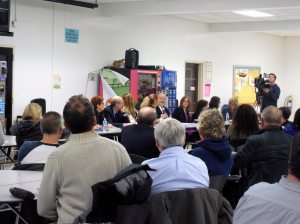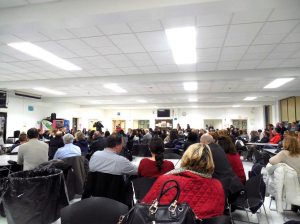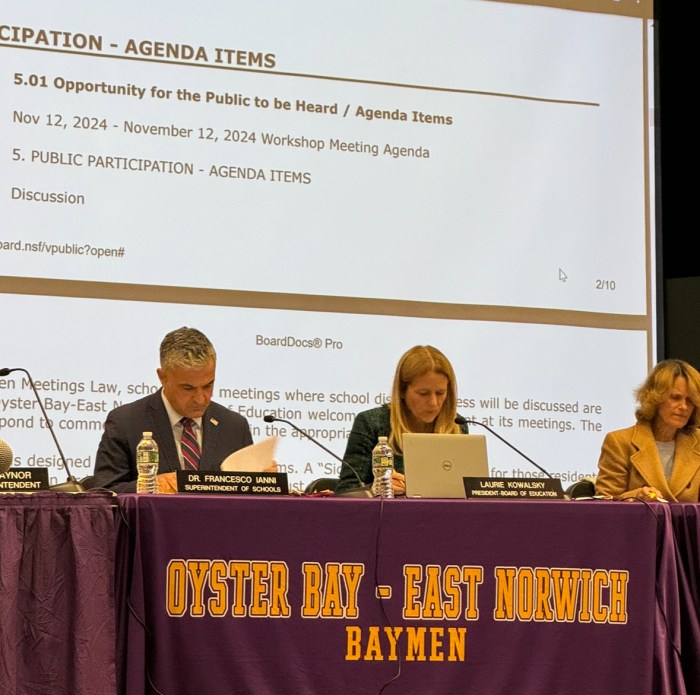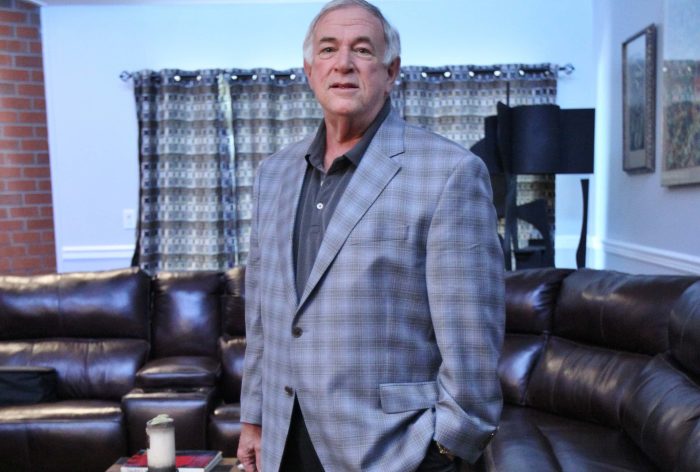
 Citizens packed the cafeteria at Schreiber on Tuesday night to consider whether the community would support a school budget in excess of the tax levy limit this year.
Citizens packed the cafeteria at Schreiber on Tuesday night to consider whether the community would support a school budget in excess of the tax levy limit this year.
Board President Karen Sloan invited members of the community to speak out on the issue after a brief summary of the district finances by Assistant Superintendent of Business Mary Callahan. Callahan framed the debate, setting the estimated tax cap levy limit for the district at 0.85 percent, up slightly from the 0.66 percent number offered at last week’s board meeting.
Economic pressures and increased enrollment at both the elementary and secondary levels have put significant stress on the district’s ability to continue to provide quality education to its students, according to Superintendent of Schools Dr. Kathleen Mooney. She expressed her concern about educational programs in the district and additional staffing needed to accommodate enrollment growth and state education mandates. In order to keep the elementary, middle and secondary schools within the class size policy and comply with state mandates, Dr. Mooney said it will be near impossible for the district to keep within the levy limit this year.
Most in attendance were supportive or understanding of the need to exceed the levy limit, but the sentiment was not unanimous. A few of the residents voiced concerns about nonresident students attending the schools and questioned growing enrollment given the decline in birthrates. Callahan assured the attendees that the district has a very accurate formula to project enrollment and has a rigorous registration process. Others opposed a higher tax increase, pointing out that the district has had tax caps in excess of 2 percent in past years and should have to live within its means despite a levy limit below 2 percent. Another concern was the potential loss of the New York State tax rebate, which residents receive when the district stays below the tax levy limit, which Callahan acknowledged would be the case if the district exceeded its tax cap.
Parents of students in the school system were generally supportive and several of the PTA presidents spoke of positive feedback they received when surveying their members, pledging to do whatever was needed to get out the vote to achieve the necessary supermajority should the proposed budget exceed the cap. Other residents, while sympathetic to exceeding the limit, were concerned about a lack of long-term fiscal planning. David Slattinger, a candidate for the board of education last year, said he has seen this coming and while not opposed to a recommendation to exceed the cap, would feel better about it if he thought the resources of the district were being used wisely. “Everyone wants the best education,” said Slattinger, in calling for a long-term financial blueprint for the district. “We know the system is unsustainable and we cannot be here year after year.”































